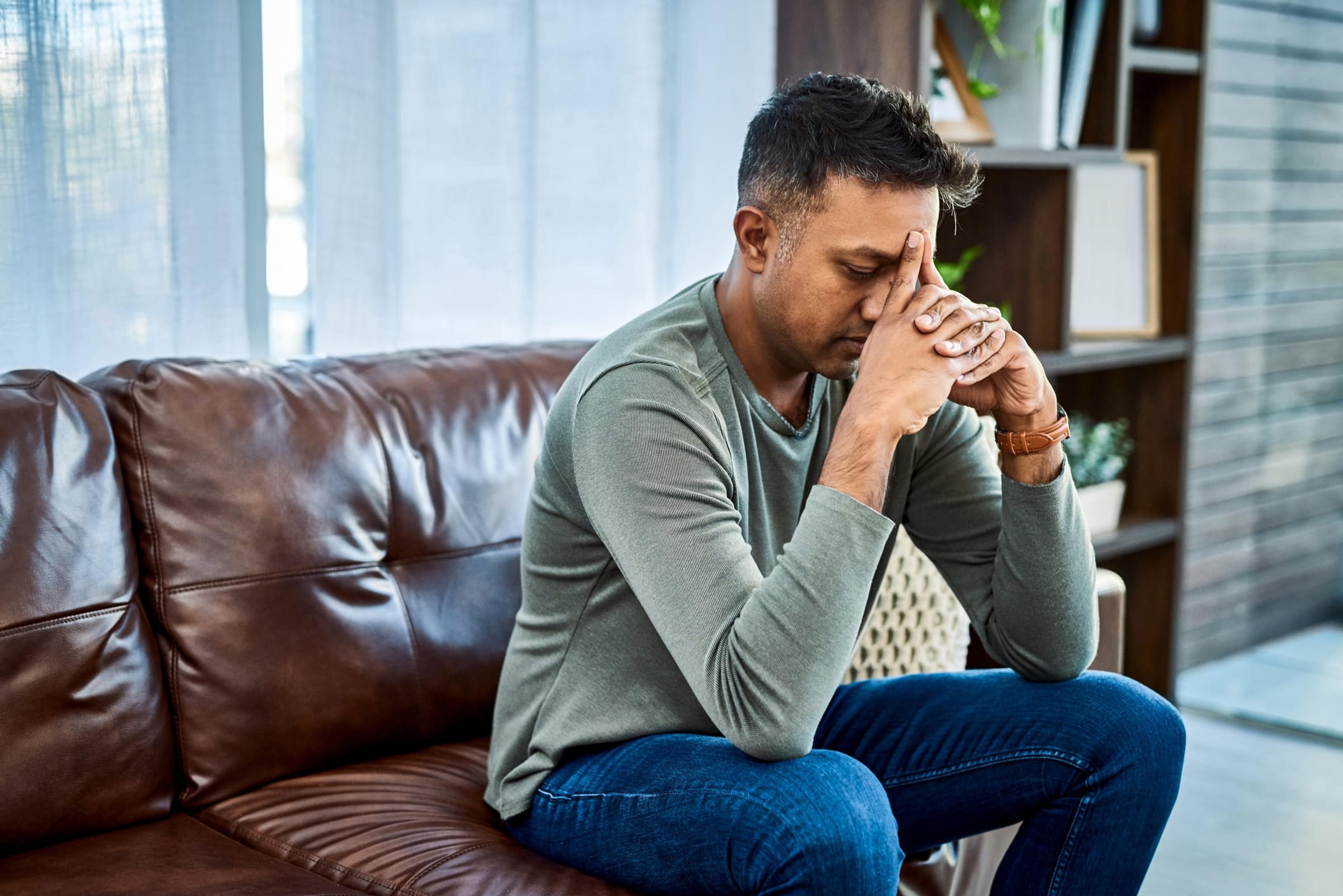Men and Mental Health: Stigma and the Hidden Signs

James Grant, M.D.
| 3 min read
James D. Grant, M.D., is executive vice president and chief medical officer at Blue Cross Blue Shield of Michigan. Dr. Grant is a native Michiganian and graduate of Wayne State University School of Medicine. He completed his post graduate training at Northwestern University Medical Center in Chicago. He is a diplomate of the American Board of Anesthesiology, completed his recertification in 2008 and is an associate examiner for the Board.

While mental health issues like depression and anxiety affect both men and women, studies have shown men are less likely to seek help or receive treatment. Research on this disparity often leads to the societal stigma of mental health. For example, a 2018 study from the World Health Organization found that the cultural stigma of mental illness affects men more than women. Men may feel ashamed or embarrassed by their thoughts and feelings, influenced by longstanding cultural attitudes about gender and mental health, as shown in a 2016 study. In the study, more than 75% of respondents indicated they would feel disappointed in themselves or inadequate around other people if they were depressed. The cultural idea of masculinity also deters many men from seeking help. The societal pressure for men to always be strong can lead them to ignore or deny symptoms. Unfortunately, this reluctance to get help can have tragic consequences. According to the American Foundation for Suicide Prevention, men died by suicide 3.63 times more often than women in 2019.
Men and Women Have Symptomatic Differences
Recognizing signs and symptoms of mental health concerns is an important first step. This is particularly important because these issues may present themselves differently in men versus women:
- Individuals with depression may feel irritable, sad or have trouble concentrating, but because men are more likely to internalize their feelings, they can become angry or aggressive.
- Men tend to numb their feelings through alcohol or drug use more than women.
- A 2022 study found that women had higher prevalence of depression, anxiety, panic disorder and social phobia than men. On the other hand, men had higher prevalence of alcohol and drug dependence, and antisocial personality disorder.
- Women are more likely to withdraw when processing their emotions. Men are more likely to be impulsive, aggressive, coercive or exhibit noncompliant behavior when dealing with emotions.
Recognize the Signs of Mental Health Issues
Each person is unique in the way they exhibit a mental health concern. Some men may not show any noticeable signs at all, while others may display several concerning behaviors. The National Institute of Mental Health lists the following signs of mental health disorders in men:
- Aches, headaches, digestive problems without a clear cause
- Anger, irritability, or aggressiveness
- Difficulty concentrating, feeling restless, or on edge
- Difficulty sleeping or sleeping too much
- Engaging in high-risk activities
- Feeling flat or having trouble feeling positive emotions
- Increased worry or feeling stressed
- Misuse of alcohol and/or drugs
- Noticeable changes in mood, energy level, or appetite
- Obsessive thinking or compulsive behavior
- Sadness or hopelessness
- Suicidal thoughts
- Thoughts or behaviors that interfere with work, family, or social life
- Unusual thinking or behaviors that concern other people
Individuals who recognize these signs in themselves or a loved one should talk with their health care provider. Those in crisis or at risk of self-harm can call the National Suicide Prevention Lifeline at 1-800-273-8255 for free, confidential support 24/7.
James D. Grant, M.D., is senior vice president and chief medical officer at Blue Cross Blue Shield of Michigan.
More from MIBluesPerspectives:
- Basic Self-Care for Leaders
- Is Stigma Affecting Men's Mental Health?
- How to Find a Good Substance Use Disorder Treatment Facility
Photo credit: Getty Images





